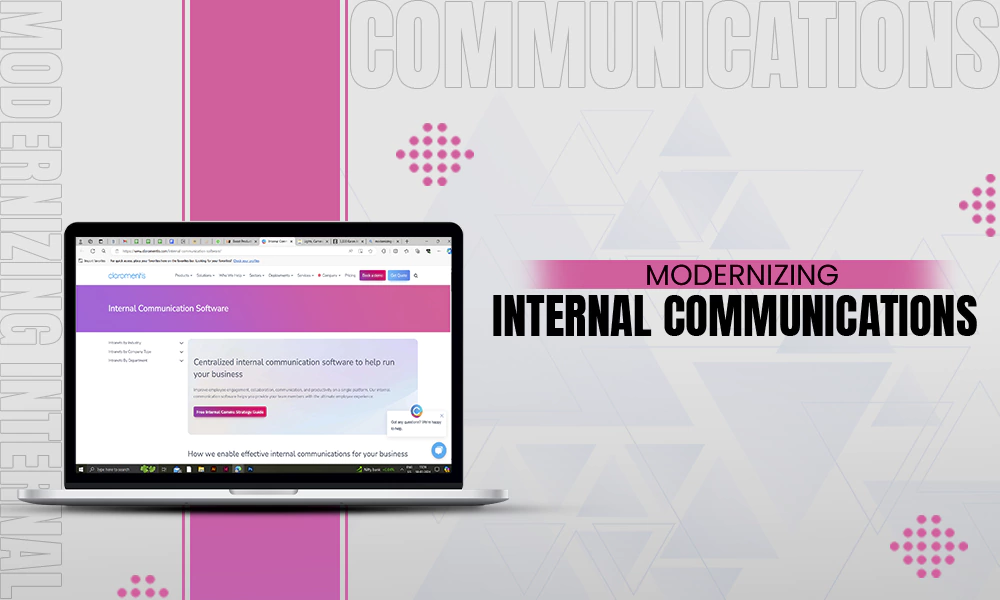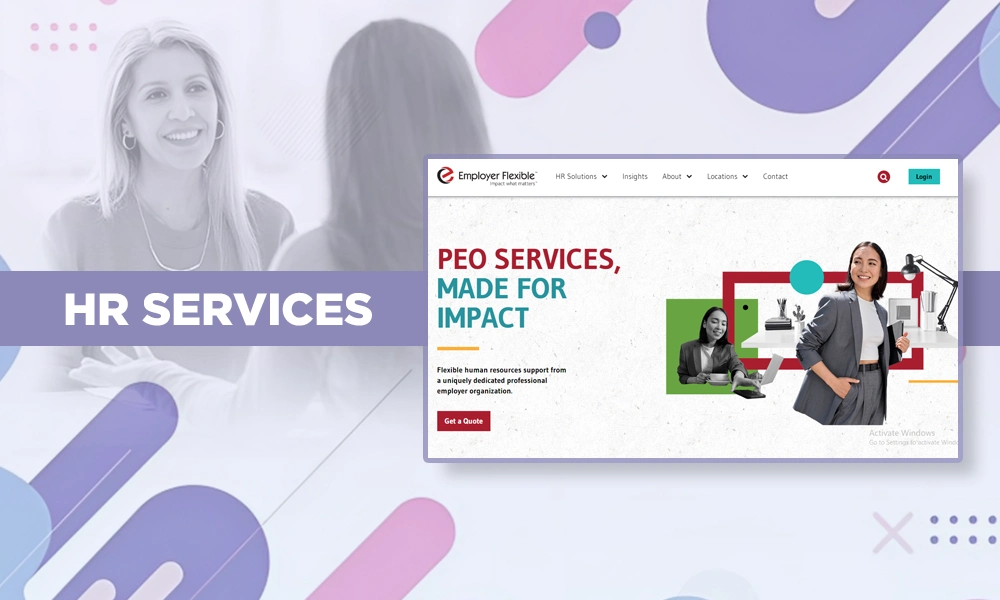7 Best Tips How Do You Optimize Your Company’s HR Operations for The Digital Age?

HR has evolved significantly during the last few decades and continues to do so. Nonetheless, key human resource best practices have remained over time, acting as guides for HR practitioners. But what precisely do they entail, and why are they so important? In this essay, we’ll go over the seven finest HR practices. These are critical components of good human resource management.
Hire Outstanding Employees
Any successful business relies on its employees. As an HR professional, your first aim should be to get the best people into your business so that they can contribute to the company’s culture and success.
Hiring exceptional individuals is, of course, easier said than done. To hire the finest, you must first ensure that you have excellent hiring practices in place. If your hiring procedure is poor, or if you fail to communicate properly and swiftly, you will lose some of the top candidates.
When considering the hiring process, attempt to put yourself in the shoes of your candidates. “How was the applicant’s experience?” you might wonder. Are they well-informed about their position? Did you respond swiftly to their questions and express your enthusiasm for their application? Did you make them feel at ease and valued during the interview? Take the time to fully comprehend the candidate’s background so that you can identify areas for improvement.
Perform Due Diligence
Your goal is to hire the best people for the job. In order to do that, you need to be thorough about assessing the candidates that come forward with applications.
You need to perform due diligence. Doing so ensures that individuals who are selected are more likely to reinforce and maintain the values and behaviors promoted by your organization. Undertaking the process of risk identification, assessment, and decision-making reduces the chances that a new hire or a new recruit would cause more harm than good to the company.
Scrutinizing CVs, calling up references, and doing criminal background checks are all part of the due diligence process. While it is not necessary that you have all of these steps, to do so would be highly recommended.
Train and Onboard for Success
Once you’ve gotten outstanding people in the door, it’s your job to assist them to succeed. Starting a new career at a new firm may be a difficult transition for anyone, including the most experienced experts. Make sure you have an onboarding process in place when you hire new personnel. Remember that the first 45 days of employment account for up to 20% of all worker turnover. This is due to insufficient onboarding and training.
Your onboarding process should start before the new hire’s first day on the job. All key paperwork, such as the employee handbook, the I-9 form, tax documents, NDAs or Non-Competition Agreements, and any other document that requires an employee to examine or sign, should be provided to the employee before the first day of work. Get these items out of the way so that an employee does not spend their first day buried in mounds of paperwork.
The next step is to develop a training plan that will bring the employee up to speed. Even if the new recruit has prior expertise in the role for which they were employed, this does not guarantee that they will be able to contribute straight away. They’ll need to be trained on your company’s products, operations, mission, and lingo. Assume that everything is new for the new employee since it most certainly is.
Also Read: Top 8 Benefits of Hiring an SEO Specialist for a Business
Make Workplace Safety a Priority
Although workplace safety has always been a priority, there is a fresh emphasis on this crucial HR practice. While some people associate workplace safety with manufacturing employment or being cautious around heavy gear, this is not the case.
The COVID-19 pandemic has compelled all companies, regardless of industry or activity, to devote a greater priority to employee safety. Employees may just stop coming to work if they do not feel safe and cared for when they arrive.
Establish Open Communication Channels
Whether your workers work from home, in the office, or a combination of the two, open communication channels are an important HR practice. Employees must believe they are being heard. If their opinion is not respected, it will be difficult for them to be motivated to work hard.
The epidemic has altered how employees communicate, and we expect many of those changes to persist. Many businesses and organizations throughout the world use chat systems like Slack or Microsoft Team, project management programs like Asana or ClickUp, and video conferencing tools like Zoom and Google Meet.
Part of your responsibility as an HR department will be to ensure that communication is consistent throughout the organization. Ensure that employees are comfortable using the communication tools provided to them and that everyone in the organization has a method to contact anyone else.
Another thing to think about is allowing employees to talk directly to corporate leadership. Of course, every employee should have a manager with whom they meet regularly, and this manager should be able to pass on information to higher-ups in the organization as necessary. Furthermore, some organizations have open conversations or forums with corporate leaders on a weekly or quarterly basis to allow employees to ask questions or provide advice on the company’s direction. These types of discussions make employees feel more included and involved.
Employees should be well compensated
The most essential item to employees, according to various surveys conducted among hundreds or even thousands of employees, is fair pay. When employees believe they are being adequately compensated, they spend less time wondering why they aren’t making more and more time focusing on projects and efforts that take the organization forward.
So, how can you know if your employees are being paid a fair wage? An excellent approach to do this is to compare their pay and benefits packages to the market in your area. Obviously, if your company is located in rural Nebraska, you do not need to compensate employees in the same way that a company headquartered in San Francisco would. When it comes to compensation, location is important.
Services like Glassdoor and Payscale make it straightforward to obtain wage data for various job titles. You can check the range of pay for positions with certain job titles and ensure that the salaries you are paying are within that range. Of course, if you can afford it, it’s always a good idea to pay at the top of the spectrum. When an employee is highly compensated, he or she feels respected and cared for. This will almost certainly result in them sticking with your firm for a longer amount of time.
Aside from compensation, you should think about whether and how your company gives out bonuses. Bonuses are an excellent method to motivate staff and can come as a pleasant surprise to some of your best achievers. Consider developing a bonus structure that links the company’s goals with the performance of its personnel.
Control Employee Performance
Just as it is HR’s mission to hire exceptional people, you must manage and track your employees’ performance. This allows exceptional employees to be recognized for their efforts, be promoted, receive raises, and take on additional responsibility, while also assisting in the identification of employees who are underperforming.
Employees, contrary to popular assumptions, prefer to have their performance appraised. They would rather know where they stand and receive feedback on their effort. In an employee’s view, there are few things worse than getting dismissed for performing a lousy job and never having the opportunity to make improvements or fix the behavior.
Employee performance management is most often initiated at the managerial level. Managers should meet with staff frequently for one-on-one meetings and performance reviews. If your organization simply analyzes employee performance on a bi-annual or annual basis, you are failing your employees. These kinds of reviews should take place every month (or quarterly at the very least).
Everyone benefits from regular performance management. Employees have a better understanding of where they stand and what is expected of them, and company leaders are learning which parts of the business are strong and which areas require improvement. This HR practice includes getting everyone on the same page, working toward common goals, and receiving feedback along the way.
Provide High-Quality Employee Benefits
We recently discussed the significance of giving employees a living salary, and this concept of providing outstanding employee perks expands on that practice. Employee perks are a component of the overall compensation package. When you provide good perks to your employees, you give them more reasons to stay and work for your firm.
Some advantages should be considered as needed. Paying state and federal unemployment taxes, complying with workers’ compensation requirements, contributing to state short-term disability programs, and complying with the federal Family and Medical Leave Act are all examples of what this entails. While many of these needed benefits will go unnoticed (and certainly unappreciated) by your employees, they must be provided.
Other perks, sometimes known as fringe benefits, are not mandated by law but are frequently expected by employees. Without some sort of perks, the prospects of attracting and maintaining high-performing employees are slim. We live in a competitive world where many firms offer enticing benefits packages such as unlimited PTO, flexible work hours, paid insurance plans, and 401k matching. Even if your firm cannot afford to provide all of these advantages, we recommend you devise a strategy to keep you competitive in the talent market.
Paying for streaming services, business mentoring, invoice generator, substantial paid parental leave, access to a company Audible account, a pet-friendly workplace, and in-office entertainment are examples of less expensive benefits that may be appealing to present and future employees (ping-pong tables, X-Box, etc).
In many ways, 2022 will be the same as any other year. HR will still need to focus on hiring the finest people, educating them well, managing their performance, fairly paying them in terms of compensation and benefits, and developing solid recognition and termination processes.
In other aspects, 2022 will be unmistakably different from any previous year. HR departments must confront the new reality of working conditions that may or may not be impacted by a lethal virus. As businesses strive to establish a safe environment for their employees, workplace safety will ascend to the top of the priority list. Companies must also consider the increased flexibility that employees now want. Creating possibilities for employees to work in the office or from home will provide them with the flexibility they seek.










